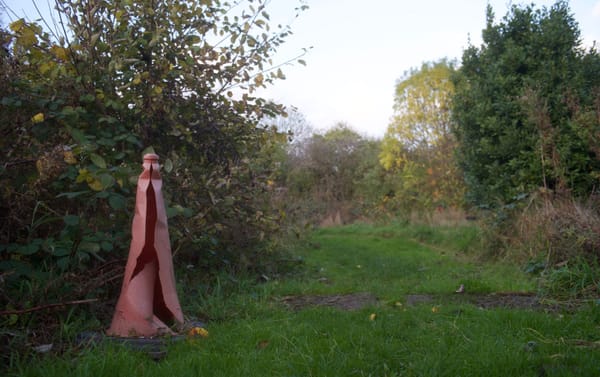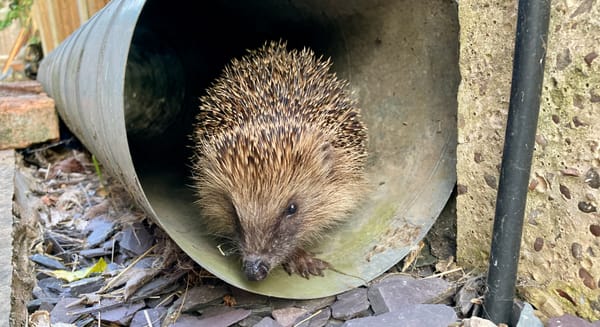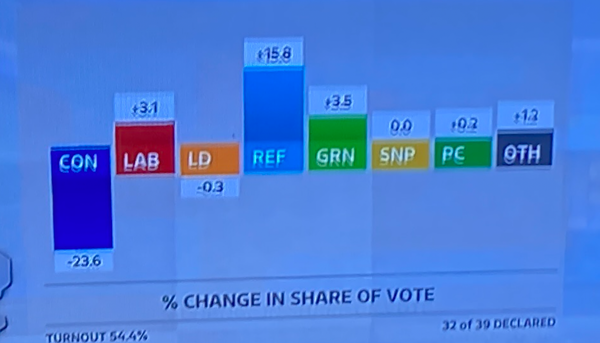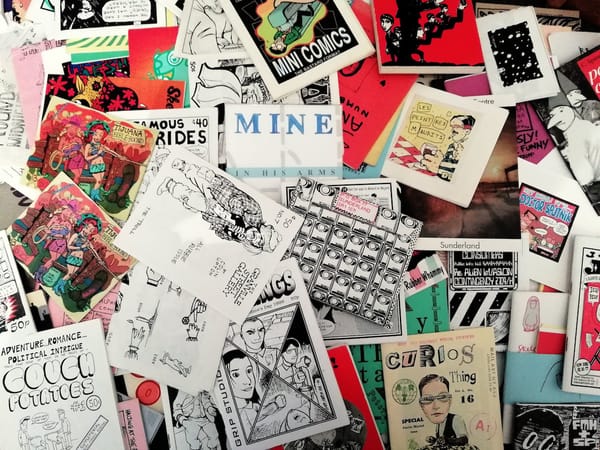Grief and autistic burnout - 2023 was a lot
This is a 2,000 word post about the last 18 months and what happened to me during them. It contains a lot, and I thank you for your indulgence.
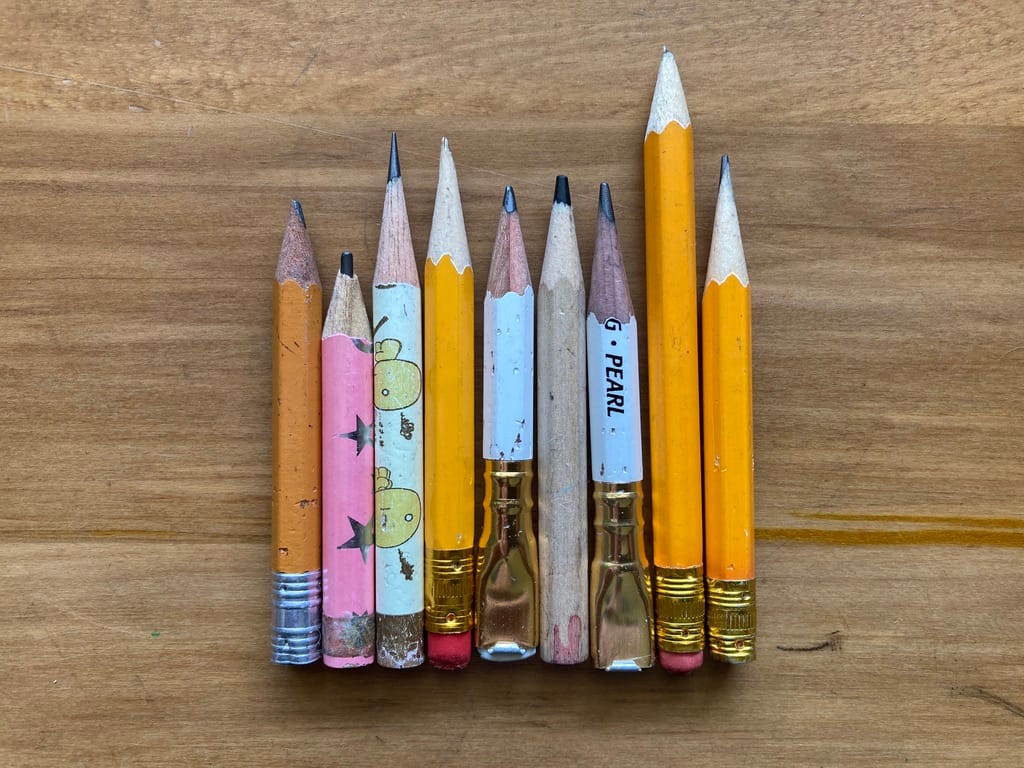
A year ago, both my parents died. My dad in January and my mum in February. They were on opposite sides of the planet but had a number of things in common. Both deaths were unexpected - dad's was a late cancer diagnosis giving him weeks to live, mum's during recovery from an operation. The rest of 2023 was somewhat coloured by this, as you might imagine, and it struck me, as these anniversaries chime for the first time, that I've not tried to write about it, and that maybe I should try.
Over Christmas 2022/23 I had a sudden recovery after 6 months of Long Covid. I'd got a particularly bad dose in July 2022 and had been suffering from fatigue for the rest of the year – not bad enough to keep me bedridden but enough that a reasonable amount of exercise, mental or physical, would render me next to useless for the next two days. Over the winter break I realised in hindsight that I hadn't felt like shit for a few days and while I had the fitness levels of someone who had done no exercise for half a year, I was definitely on the mend.
On January 8th Fiona and I were getting ready to leave for Winchester. Dad had been admitted to a hospice and this was probably the last chance to see him. Just as we were about to lock up I got a call from my step-sister that he had died. The funeral was on Feb 1st.
On Friday Feb 10th, the week after my dad's funeral, I got a 6am call from my sister in New Zealand. The prognosis for mum's heart surgery had changed and the increased chance she might not survive meant I should seriously consider coming over before the operation on Monday.
By noon I was on my way to London for an 8pm flight from Heathrow, landing in Auckland 30 hours later. I saw mum that afternoon and again on the day of her operation. She came through it OK and there were a couple more visits, but then there was a complication and my sister and I got the call from our step-dad that she'd died. The memorial service was a week later.
I stayed in New Zealand for a month in total, living with my sister and her family who I hadn't seen much of over the last few years, what with Covid and them being on the other side of the planet. And then I few home.
Shortly after I was back in the UK and back at work I noticed my arms were aching, specifically the inner pointy bits of my elbows. Also, the fatigue was back and I was unable to do a full day at work. It was like Long Covid, except it wasn't. I was very confused until a good friend told me this was grief.
The idea that grief could have a physical manifestation was news to me. But then everything about grief was news to me. Somehow I had gotten to the age of 51 with no-one explaining to me what would happen to my brain and body when my parents died. I'm being facetious because of course they hadn't because we're shit at talking about death in this country.
So I now had grief, which I was told would pass, which was good to hear.
In June my sister came over from New Zealand and stayed with us for a while. At the end of the month we had a memorial day for my mum's UK-based friends and family and scattered her ashes. I wasn't expecting this to do much for me, based on the last three months of nothing really doing much for me, but afterwards I felt like a weight had lifted. I don't know why, but I wasn't going to argue.
July and August were pretty good in comparison. I built a couple of massive community composting bays with my friend Dale and started therapy.
When I was in New Zealand talking with my sister she mentioned she'd gone through some therapy to unpick some parental stuff, and it occurred to me that I might have some buried things to work through too. Once the grief hit hard on my return I started looking into affordable options and settled on weekly online sessions with the Meridian Centre in Birmingham.
I think they're working for me. At least people who know me say it seems to be making a positive difference. I don't know if I can quantify the difference, but it's certainly there.
One twist is that I'm not really dealing with any parental issues. While they are obviously there, the main stuff seems to be related to my autism, specifically my sense of self. And this has had some repercussions.
Over the autumn the strain of work started to get the better of me. Like many small businesses the last four years have been insanely tough and we are all quite exhausted. Loaf is still standing and is a perfectly viable business that is not in danger of closing any time soon, but maintaining that in the face of bonkers inflation has taken a toll. I think that in a normal year I'd be fine, but not this year.
In November Fi and I went to Fuerteventura for a proper holiday in the sun. Despite sleeping a lot and going to the beach and basically doing nothing, I actually came home more exhausted.
By December I was put on light duties at work. My doctor could prescribe nothing more than rest, which I was already doing because after a few hours of activity I was having to spend the next day or two in bed. It was like Long Covid all over again for third time, and it was starting to get really annoying, especially as my niece, Isobel, was over from New Zealand for two months and I was pretty incapable of spending much quality time with her.
Christmas came and went and Fi, Isobel and I went to Brighton for a week. I barely left the apartment, and everything in the apartment annoyed me. On the way down I started reading Fern Brady's memoir Strong Female Character, about living with undiagnosed autism until her 30s. Her situation was very different to mine but every chapter had me gasping with recognition. I finished it in two days, which considering I've barely made it past chapter 1 of a book since 2020 is saying a lot.
I also revisited a booklet on autistic burnout someone had sent to Fi in the spring. For some reason, despite getting a fucking autism diagnosis in my 40s and going into therapy with the aim of understanding what that meant, it hadn't occurred to me that it might be the reason I was having such a shit time of it. I made a note that one of my autistic traits might be ignorance of when my autistic traits are kicking in.
The thing with a diagnosis, especially in mental health, is it's mostly an educated guess. I can't say with absolute certainty that I have "Autistic Burnout" but that doesn't really matter. What matters is whether diagnosis describes symptoms I recognise and offers a model for recovery that benefits me. So far (and it's early days) it seems like it does.
One of the ironies of accepting you have an autistic problem is that you then proceed to get more autistic. I've realised that because my autism isn't as severe as some, I've been able to hide, or "mask", it fairly successfully all my life. From other people of course, but more critically from myself. Because I have a sense of how I should be thinking and behaving, I prop myself up and push myself through situations that, if they're not actively hurting me, are taking way more energy than might be considered normal. When I was young and relatively fit and healthy I could accommodate this higher cost, but as I drifted into my 40s my capacity has shrunk. (This is probably why there are a lot of middle-aged autism and ADHD diagnoses.)
At first, when I was unable to find the energy to mask, the traits occasionally bled through, but now I've totally given up the pretence, and boy oh boy are they pronouncing their presence!
The first thing that I've really noticed is my sensitivity to stimulus has gotten markedly worse over the last six months. I can't deal with spotlights and bare bulbs, and ambient noise has become painful. I actually thought I was going deaf but it turns out my hearing is pretty much fine – it's my ability to filter and process sounds that is broken. I now have proper noise cancelling headphones which I wear at work (lots of fridges and extractor fans in a bakery) and keep a pair of earplugs with me at all times. Socialising is next to impossible at the moment but on the rare occasions I do go out, I make sure I take breaks from the room, walking around the block or just standing outside like a smoker.
The second thing is headaches from thinking. Before Christmas I realised I was taking painkillers every afternoon just to get through the day. Now I'm finding I can do about two hours of proper thinking before my brain starts to hurt. It's not like a dehydration or hangover headache, more like a sinus pain, only around the back of my skull. This loss of executive function is actually quite distressing because I really enjoy thinking, problem-solving and organising. It's something I've gotten quite good at over the years, and now I can't do it without hurting myself.
These bring into question the whole purpose of recovery. I'm clearly knackered after a shit 18 months, but if I were to rebuild my capacity so I can mask and push through the days again, is that enough? The goal I've set with my therapist is to move from an oscillating pattern of capable / incapable where I at best budget in crashes, to a smoother line where I work within my limits and don't crash. This feels sensible, but critically it involves respecting my limits.
The autistic burnout guide talks about recovery involving "grief work", where you accept that you can no longer do what you thought you could do, or think you should be able to do. In the short term I'm more than happy to accept that I can't do stuff, because I'm exhausted, but in the long term it feels like I'm writing off the rest of my life. The big question, I guess, is what the capacity of "recovered" looks like and I have no baseline to work with right now.
Also, more grief? Seriously?
I'm blessed, and I don't use that term lightly, to have the support of my wife, Fiona, but also to be working at Loaf who have been more accommodating than I could ever hope for. I'm also lucky to have some proper friends who genuinely seem to give a shit about me. I'm 100% sure that without them I would be burning my bridges and starting from scratch, as has happed a few times in the life of Pete (1991, 1998, 2003, 2008 and 2017, to pick a few years). But not this time. Partly because I genuinely don't have the energy to start from scratch, but mostly because I don't have to.
I'm still on light duties at work, going into the office for a few hours here and there to keep the finances ticking over and working from home on the business planning. Resting is hard as I just want to do things, but I'm getting better at it. I even read most of a couple of books. In April I want to try building up my capacity again, but only if I'm ready.
If you've made it to the end, thanks for reading. I could go on, and I probably will talk about more specific things at a later later date. But the purpose of this was to get down the facts as I see them, to get 2023 out of my head and into words. And there it is.
